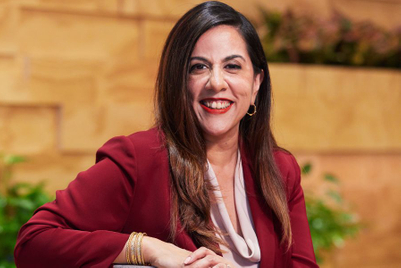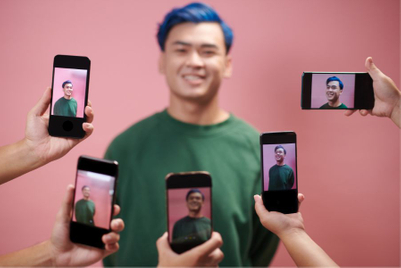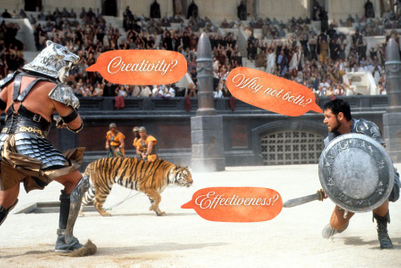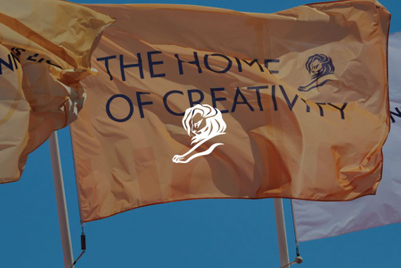
The creator economy has changed how marketing works turning content makers into entrepreneurs, opinion shapers, and brand builders. Indian creators are pivoting from traditional content roles to become independent business owners, shaping consumer behaviour and brand perception.
However, concerns surrounding over-exposure, authenticity, and diversity have sparked debates about digital fatigue. People get tired of digital content because it is available in surplus.
They also don't trust if the content posted is real. Also, there's not enough variety in content.
To fix this tiredness, brands need to rethink their strategy, focus on making good content instead of lots of it, be honest about what they're doing, and include all kinds of people in their content. Through this, brands can break from the noise and forge long term relationships with their audience.
Building trust through collaboration
The creator economy sets itself apart from traditional influencer marketing by promoting teamwork between brands and creators. This approach allows companies to create devoted fan bases, spark user-made content, and reach specific groups of people.
Being real is key to building trust, and brands can stay genuine by teaming up with creators who share their values asking for honest opinions, and following clear disclosure rules (FTC guidelines 2024). Indian companies like Tata Tea and Dove have shown how well creator-brand teamwork can work when they focus on shared beliefs and openness.
Similarly, Nykaa and FabIndia have made good use of marketing driven by creators. They've done this through workshops, content from users, and projects focused on sustainable fashion.
These brands have grown a lot in terms of social value and money made. To handle the current trend of calling out brands, companies need to watch social media, create content that includes everyone, deal with what customers are worried about, and show what the brand believes in.
Leveraging creator-driven campaigns
Brands should pay attention to values they share with customers, let creators do their own thing, and get the community involved to build real connections. Renowned Indian brands have used creator-based marketing well, which has helped them grow in social value and make more money.
However, brands should stay away from deals that feel too business-like, not checking out creators enough, and ignoring what the community says. Bringing creators into how marketing works can help a lot, but it can also cause problems.
In the end, as the creator economy changes, brands need to focus on being real, including everyone, and getting people involved to fight digital burnout. By building strong connections and getting users to make content, brands can make sure their partnerships with creators work well, which boosts their social value and helps their business grow.
Avoiding common pitfalls
There are brands today that are increasing marketing as much as brands are reducing influencer marketing budgets significantly. One has to understand the nature of their business and how it can benefit through social media.
Let's say Chinese Wok partners with Salman Khan as their brand ambassador. They'll analyse their target audience, seeing how many people resonate with his movies, etc.
But Instagram is flipped. Creators who have developed bigger profiles on Instagram like Awez Darbar of India, there might be Awez Darbars of Europe, and so on, become Instagram's unofficial ambassadors. People follow them on Instagram and TikTok, making them the face of the platform.
When it comes to influencer marketing, brands need to connect with Instagram's diverse audience. To do that, they must first understand who's on Instagram, resonate with their interests, be opinionated and finally, speak from the founder's perspective, keeping it real.
Data-driven insights for impact
Brands are revamping their marketing by tapping into community-led platforms. They're connecting with niche groups on Instagram, YouTube, and beyond.
Think luxury brands partnering with influencers like Meghna Kaur to showcase top-tier products. Brands are also tracking their ROI by adding links and codes in descriptions to measure engagement.
Beyond awareness-driven influencer marketing, affiliate marketing strategies are also in play. Influencer marketing's real power lies in positioning your brand, showcasing creativity, and building awareness.
For example, consider a collaboration between a brand and a product-focused campaign as an example. The process involves creating engaging assets, running performance marketing campaigns, and closely tracking data-driven outcomes.
These assets aren’t limited to social media; they often extend to other platforms like the brand's website, enhancing their utility. What truly drives the success of such partnerships is a robust influencer data analysis.
This involves diving into audience demographics—such as location, age, gender, and interests—to ensure alignment with the brand’s goals. When the numbers and objectives match, it creates a seamless and effective partnership.
The key takeaway? Leveraging data-driven insights can transform influencer marketing efforts into a precision-driven strategy. By moving away from guesswork and intuition, brands gain a clearer understanding of both their target audience and influencer profiles. This allows for more informed decision-making, maximised ROI, and tangible results that align with business objectives.



.jpg&h=334&w=500&q=100&v=20250320&c=1)









.jpg&h=268&w=401&q=100&v=20250320&c=1)



.jpg&h=268&w=401&q=100&v=20250320&c=1)


.jpg&h=268&w=401&q=100&v=20250320&c=1)
